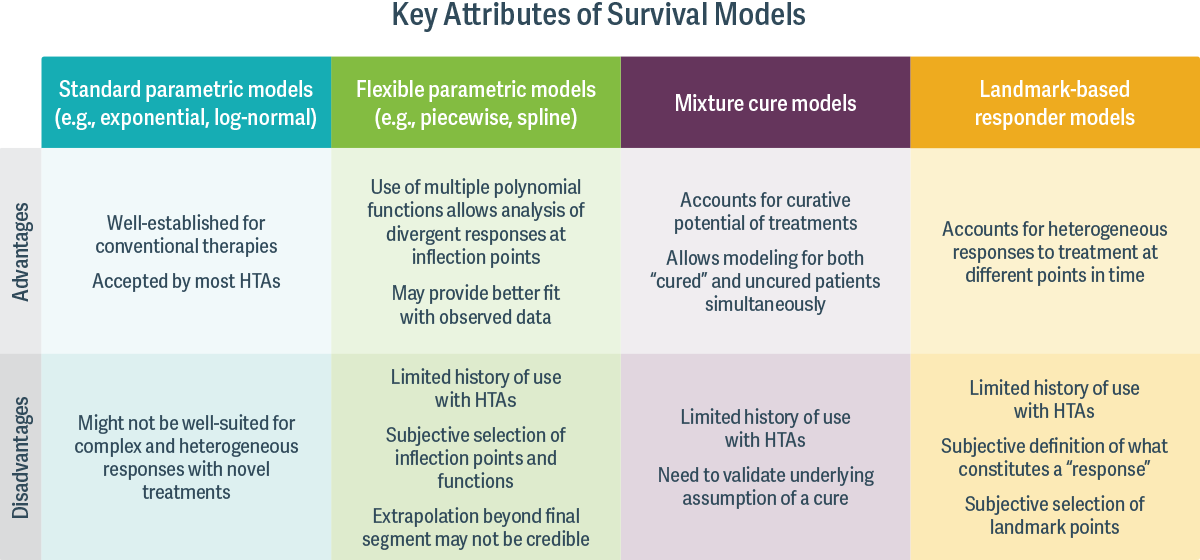-
Recalibrating Predictions of Long-Term Survival Benefits for Novel Cancer Therapies
The development of novel cancer therapies with curative potential has spurred the need for alternatives to traditional survival models for predicting long-term value.
Statistical modeling techniques are commonly used to predict survival benefits for medical treatments, which is critical for demonstrating a treatment’s value for health technology assessment (HTA) and payers’ reimbursement decisions. However, traditional survival models do not accurately capture the complexity of recent novel cancer treatments with new mechanisms of action. A broader range of statistical methods is required to ensure the best fit with the new treatment characteristics in the absence of long-term follow-up data.
For example, clinical trials for a number of emerging cancer therapies – such as immuno-oncology agents and CAR-T therapies – have identified subsets of patients who achieve durable response or remission. When predicting outcomes for these therapies, researchers may find that traditional survival models do not effectively predict the heterogeneous survival trajectories. Relying on traditional methods – such as standard parametric models – may result in biased long-term survival estimation, especially in situations where a significant proportion of individuals can be expected to achieve durable remissions or cure (representing a cohort of long-term “survivors”).
To more reliably estimate patient lifespans and quality-adjusted life years (QALY), researchers are increasingly considering alternative modeling methods, such as flexible parametric models, mixture cure models, and landmark-based responder models.
Each model has its pros and cons. (See table.) However, all aim to account for more complex survival trajectories and address the issue of a lack of long-term survival data. The choice of which statistical model should be applied and what inputs should be provided must be carefully considered, as it can significantly affect predictions of long-term value. ■

Eric Q. Wu, Managing Principal
Hongbo Yang, Managing Principal
Jenny Zhou, Vice President
